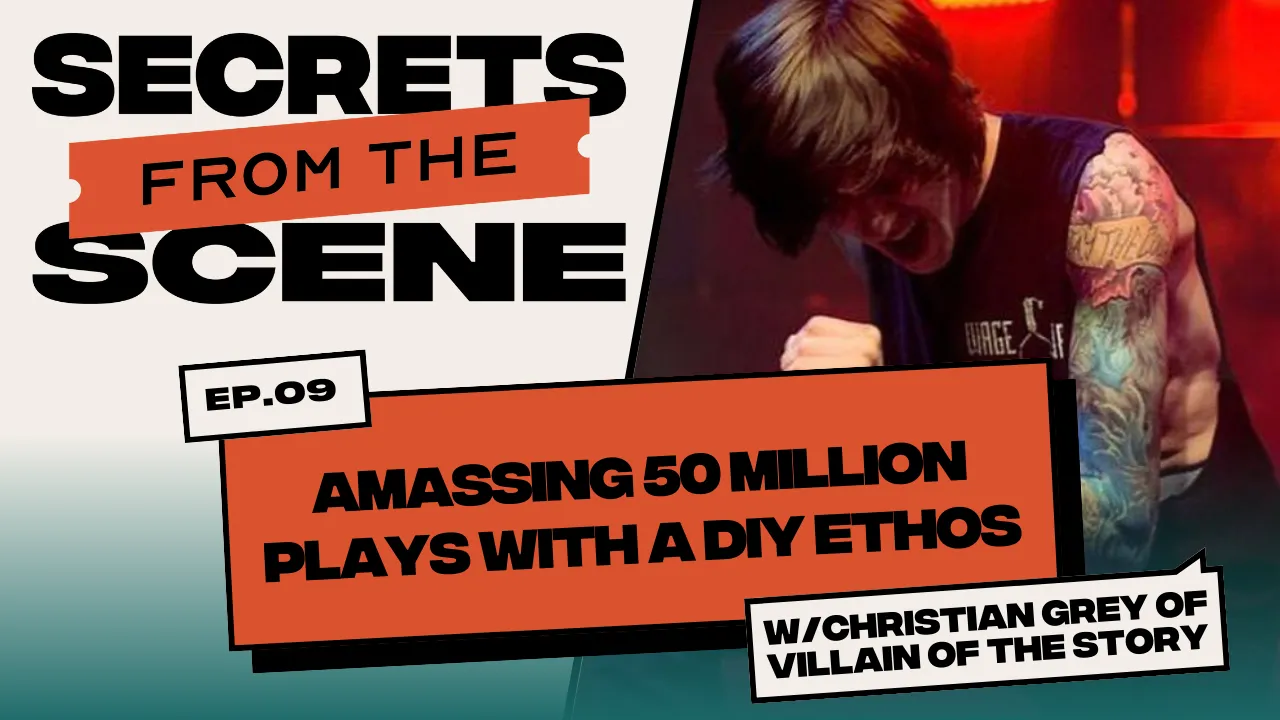Show Notes
This episode is great for bands that are looking to be as DIY as possible. Christian Grey from the band 'Villain of the Story' talks about their journey from the band’s formation in Minneapolis in 2014 to their impressive success, facilitated in large part by their DIY ethic. Incorporating elements of metalcore and radio rock, the band has released several successful albums and gained over 50 million plays across platforms. The group's experience ranges from signing with a label to being fully independent and returning to a label. Christian emphasizes their DIY approach specifically for music videos, citing that mainstream quality has lost some appeal. We also discuss generating revenue from fan bases via platforms like Patreon and YouTube memberships as well as the pros of learning how to self-produce and record music at home. Christian discusses the importance of their business model, and how having clearly defined band roles leads to healthier relationships and better productivity.
watch now on YouTube:
Episode Links and Mentions
Connect with the Guest
Featured Song
Connect with Me
Give Feedback
📬 Send me a message: stephen@secretsfromthescene.com
💬 Suggest a guest or topic: podcast@secretsfromthescene.com
🎙️ Brought to you by:
--------------------------------
Thank You
This podcast is made possible by the hard work, expertise, and commitment of my team:
Max Greene and Joey Biehn. I'm forever grateful.
--------------------------------
Theme Music: "Thankful" Courtesy of LUEDVIG

